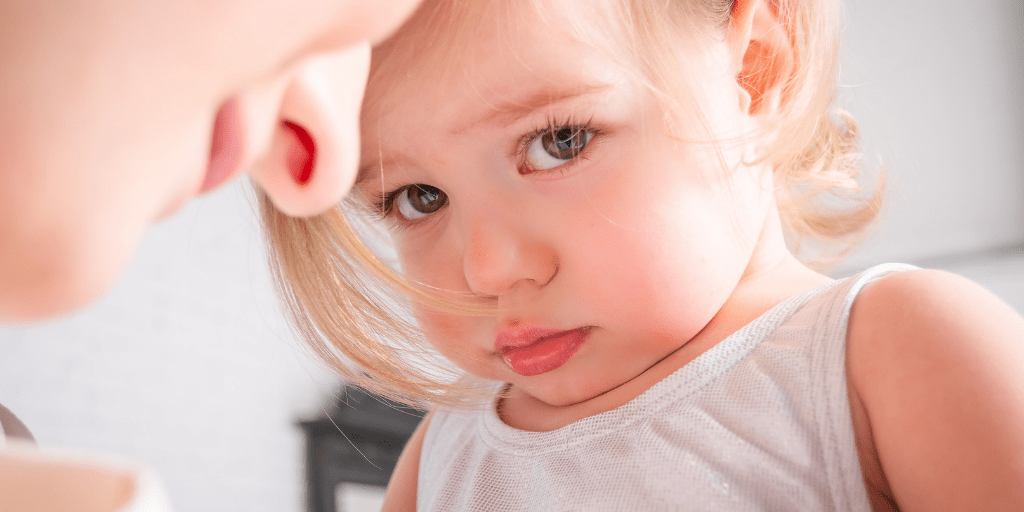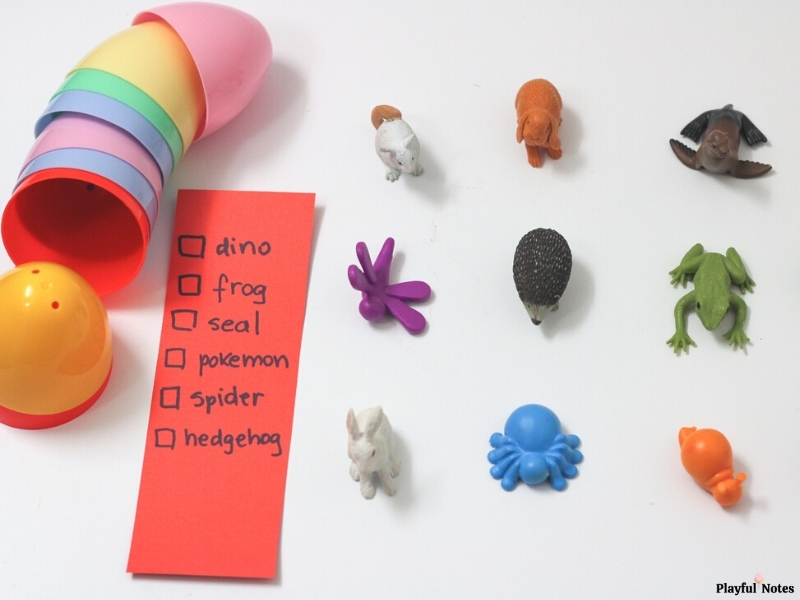This post may contain affiliate links. Read my whole disclosure here.

It’s never easy to handle a young child that hits you or bites you! It’s even harder when the aggression is directed towards other kids and you need to find the best way to intervene. If you are facing this struggle now, I can totally understand how it feels.
Finding gentle ways to handle aggression in young children is a difficult task! But the good news is that it is possible! And once you will find them, things will become easier.
I’m sharing here 3 simple steps to help a child who becomes aggressive. They really helped us when my son had aggressive behaviors and I still use them anytime he has a difficult time.
In handling aggression, punishments and time-outs are never the right answer. Aggressive behaviors are usually caused by the child feeling disconnected from us and punishments only make this disconnection become stronger. Gentle methods allow the child to feel safe and connected and offer him the tools he needs for behaving better.
Related:
If it’s difficult for your child to handle strong emotions and this leads to aggressive behavior, here is a resource that can help you with this: a cheat sheet with tips for helping young kids deal with strong emotions.
You can download it by clicking on this link.
3 gentle ways to handle aggression in young children
Here are the 3 gentle methods that worked for us and could work for you too!
1. Understand the reason behind the behavior and prevent aggression
The most important thing to remember is that children don’t intend to be mean. They don’t intentionally want to hurt others. They are just overwhelmed by their big emotions and haven’t learned a better way to deal with them.
Keeping this in mind is a great first step in approaching aggression in a gentle way. The aggressive behavior is like an SOS signal that the child sends when he feels sad, frightened, or alone.
The best way to prevent aggression is to understand what is really causing it. Does the child feel disconnected from us? Is the child facing a change in his life that is causing him stress? Does he have a fear that he cannot handle? Are social interactions stressful for him?
Answering these questions can give good clues about the reason behind the aggression. Then, we can take the appropriate measures to help the child overcome negative feelings. In all cases, building trust and connection is essential! One very useful tool to do this is spending quality time with the child. Having half an hour every day dedicated to special time with the child is a great start for building a strong connection.
Another useful approach is to prevent the behavior exactly before it happens. For example, if the child is playing with other kids and he seems to get angry, we can intervene before he becomes aggressive. We can ask him to come to you and say: “I see that you’re getting angry and I’m afraid that you’ll hit the others. I think we can do this in a better way. Let’s calm down and figure this out together”. This allows the child to take a step back from the situation, reconnect with the parent, and handle his feelings better.
2. Accept all the feelings, but limit the behavior
This is something that I’ve learned at a conference held by Dr. Laura Markham, the founder of AHAparenting.com. And it’s a very precious parenting lesson! When the child is aggressive, we should accept his feelings and help him manage them.
But at the same time, we should stop the behavior and prevent anyone from getting hurt. Setting firm limits in a gentle way is the best manner to manage this.
When the child is aggressive, the parent must stop the behavior and remove the child from the situation. Kids should never be allowed to hit others, including their parents. But it’s also very important for the child to feel that he is understood!
We can sit with the child in a quiet place and let him know that we are there for him. We can say: “I know that you are very angry! But I can’t let you hit me/other children. You can always tell me how you feel and we’ll work this out together“.
The child will probably cry in our arms or even have a temper tantrum, but this is his way of relieving the tension. When the parent accepts the child’s feelings and empathizes with them, the child learns an important lesson and develops his emotional intelligence.
After we stop the aggression, it’s important to connect with the child. We can do this using eye contact, a calm voice, and a warm hug. Only after all the emotions are offloaded, we can talk with the child about better solutions.
We can use that moment to remind him that hitting is not allowed and to reassure him that he has all our support for finding better ways to deal with his feelings.

3. Teach the child about aggression and better ways to manage difficult situations
A very helpful tool in dealing with aggression in children is to use calm moments to approach this subject. You can use books about hitting and biting or you can just start a discussion about this. Young kids are receptive to playful ways of learning new skills, so role play can also help!
The child needs to know that aggression is not all right under any circumstances. And he also needs to learn alternative methods for dealing with difficult situations. We can teach the child to say a firm “no” when other kids are bothering him.
Having a series of phrases to use when he feels angry or unsafe is a good way to prevent him to become aggressive. These phrases can be: “I don’t like what you do”, “Stop! That hurts me.”, or “No, you can’t take that from me”.
Also, we should encourage kids to come to us when they feel overwhelmed by the situation. A child who knows that he can ask for help anytime is less likely to become aggressive.
One last tool to use is reflecting. If aggressive behavior does happen, it’s important for the child to learn from it. Later in the day, we can invite the child to reflect on what happened. Simple questions can help him find his own answers and solutions. “Do you remember today when you hit…?“, “Why did you do it?“, “How could you have done it better?” are useful questions to guide the conversation.
The whole discussion should be focused on understanding the feelings and finding solutions. Blaming, shaming, and lecturing do not help. When the child is calm, he will certainly be able to find on his own more constructive ways to handle emotions.
Using gentle ways to handle aggression in young children is not easy!
It takes time and effort to see the results, but it is totally worthwhile!
Because these methods will not only help you handle your child’s aggression but will also help the child develop his emotional intelligence and feel more connected with you! And this is something that will pay off long-term in his life!
More from Playful Notes
4 positive parenting books for raising happy and confident kids
The lessons I’ve learned to prevent yelling at my child even if I’m really angry
What to do instead of punishments? 5 gentle ways to discipline young kids

photos from depositphotos.com






One Comment